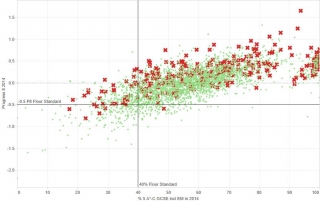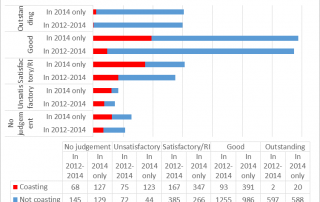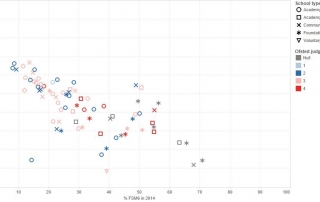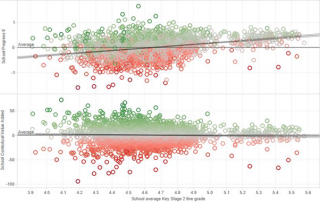Opting into 2015 Progress 8 would have been an easier route to avoid floor standards for many secondary schools
Secondary school accountability is changing and by 2016 schools will be primarily judged by their Progress 8 score, rather than the proportion of pupils achieving five or more GCSEs at A*-C, incl. English and maths. Progress 8 isn’t perfect (no rank order of schools serving different communities can be), but this is indeed progress. The [...]










